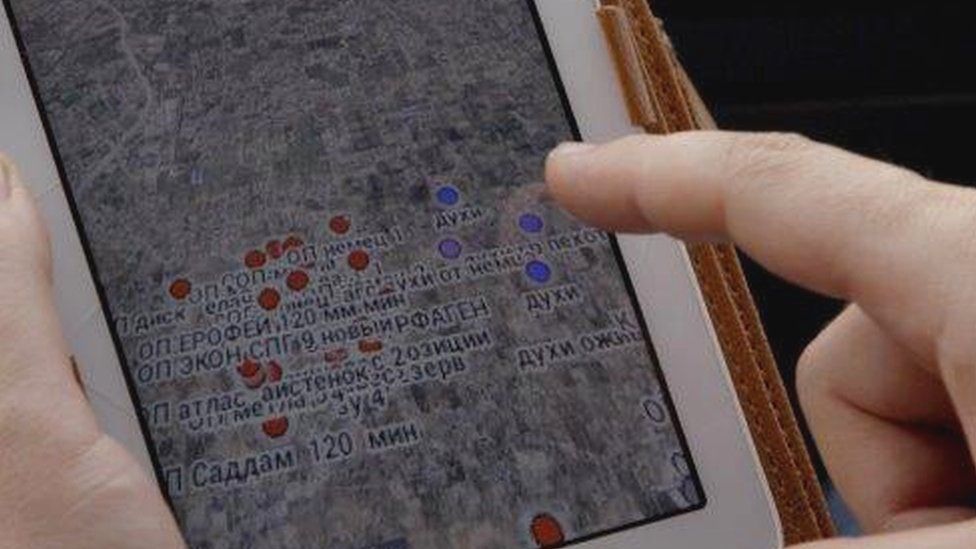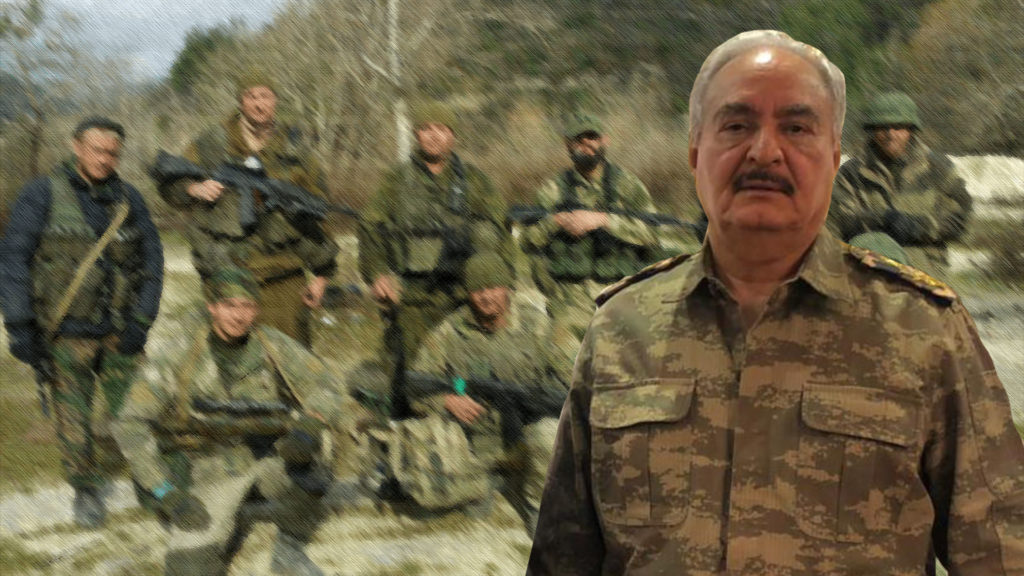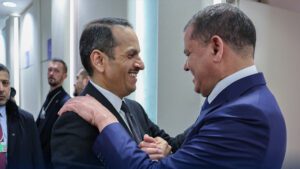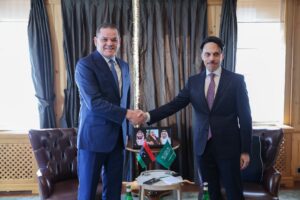Although Russia denies any links to the mercenary group “Wagner” in Libya and elsewhere in the war-ridden countries, a new BBC investigation has revealed the scale of operations by this shadowy Russian mercenary group in Libya’s civil war, unfolding links to war crimes and the Russian military.
The BBC investigation said that a Samsung tablet left by a fighter for the Wagner group exposes its key role – as well as traceable fighter codenames, thus the BBC has obtained a “shopping list” for state-of-the-art military equipment which expert witnesses say could only have come from Russian army supplies.
The Russian Wagner Group’s fighters appeared in Libya in April 2019 when they joined the militias of warlord Khalifa Haftar, after he launched an offensive on the UN-backed Government of National Accord (GNA) in the capital, Tripoli. The mercenaries and Haftar’s militias retreated to central and eastern Libya after a defeat to the regular Libyan Army force.
The BBC said it had managed to gain rare access to two former fighters, who revealed what type of person was joining Wagner – and its lack of any code of conduct.
Wagner Kills Prisoners
There is little doubt that they kill prisoners – something an ex-fighter freely admits, saying nobody wants an extra mouth to feed.
Meanwhile, the BBC said that other revelations include evidence of suspected war crimes, including the intentional killing of civilians by Wagner’s fighters.
“One Libyan villager describes how he played dead as his relatives were killed. His testimony helped the BBC team identify a suspected killer. Describing another possible war crime, a Libyan government soldier also recalls how a comrade, his friend, surrendered to Wagner fighters but was shot twice in the stomach. The soldier has not seen him since, nor three other friends taken away at the same time.” The report reveals.

The report confirms that the Russian Wagner Group’s mercenaries have planted landmines in Libya, thus eventually killing Libyan civilians.
“The Samsung computer tablet also provides evidence of the mercenaries’ involvement in the mining and booby-trapping of civilian areas. Placing landmines without marking them is a war crime.” The report adds.
According tot he BBC, the tablet was left behind by an unknown Wagner fighter after the group’s fighters retreated from areas south of Tripoli in spring 2020. The contents of the tablet include maps in Russian of the frontline, giving confirmation of Wagner’s significant presence and an unprecedented insight into the group’s operations.

Evidence for Weapons Entry to Libya by the Russians
“A comprehensive list of weapons and military equipment is included in a 10-page document dated 19 January 2020, given to the BBC by a Libyan intelligence source and probably recovered from a Wagner location.” The report says.
It added that the document indicates who may be funding and backing the operation and lists materiel needed for the “completion of military objectives” – including four tanks, hundreds of Kalashnikov rifles and a state-of-the-art radar system.
One military analyst told the BBC that some of the weapons technology would only be available from the Russian military.
Another expert, a specialist on the Wagner group, also told the BCC that the list pointed to the involvement of Dmitry Utkin: an ex-Russian military intelligence man believed to have founded Wagner and given it its name (his own former call-sign).
The BBC analysts’ conclusions of the “shopping list” and another document says that the words [Evro Polis and General Director] suggest the involvement of Yevgeny Prigozhin, a rich businessman close to President Vladimir Putin.
The US Treasury sanctioned Evro Polis in 2018, calling it a Russian company contracted to “protect” Syrian oil fields that were “owned or controlled” by Mr Prigozhin.
Russia’s Comment
The Russian Ministry of Foreign Affairs told the BBC it is doing “its utmost to promote a ceasefire and a political settlement to the crisis in Libya.”
The Foreign Ministry added that details about Wagner Group in Libya are mostly based on “rigged data” and were aimed at “discrediting Russia’s policy” in Libya.
Number of Wagner’s Mercenaries in Libya
Although the Kremlin is denying any links to the Russian mercenary group in Libya and elsewhere, many international reports, including a report by the UN Panel of Experts on Libya and the US Africa Command in Africa (AFRICOM), have pointed out to evidence of their presence in the country, at least since 2019.
About 1000 Wagner’s mercenaries are estimated to have fought with Khalifa Haftar in Libya from 2019 to 2020, according to the data compiled by the BBC.





